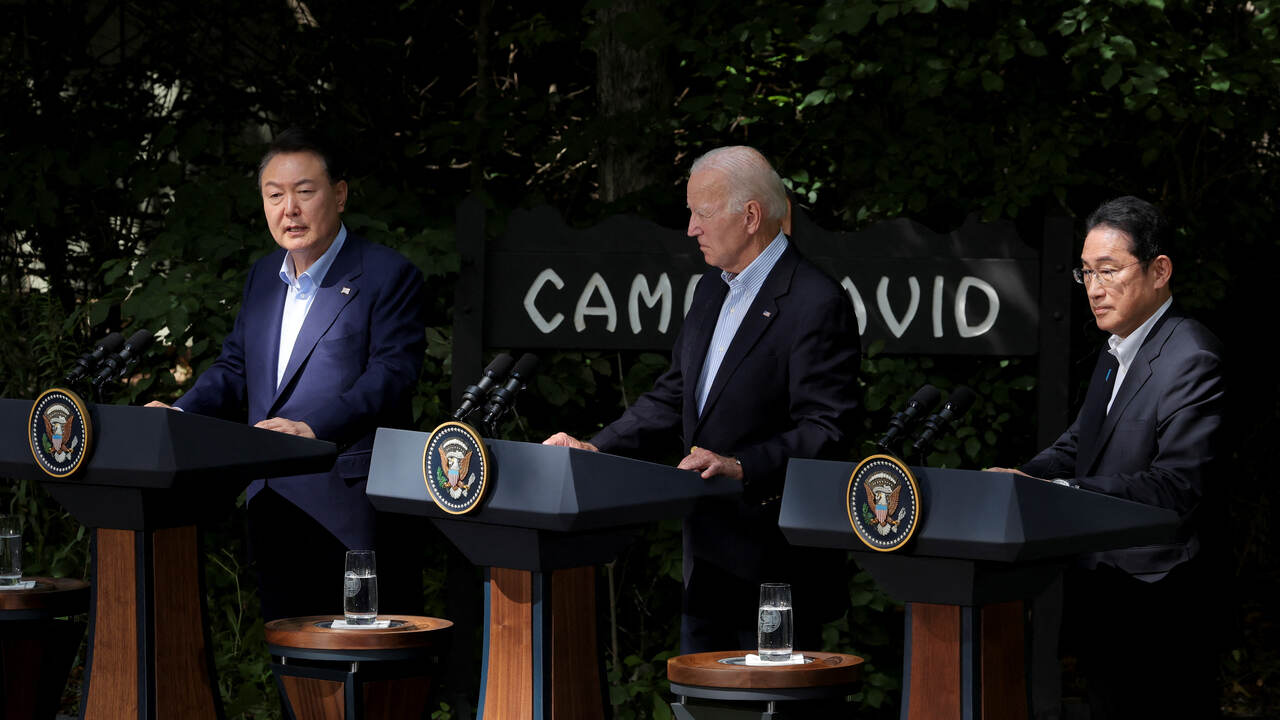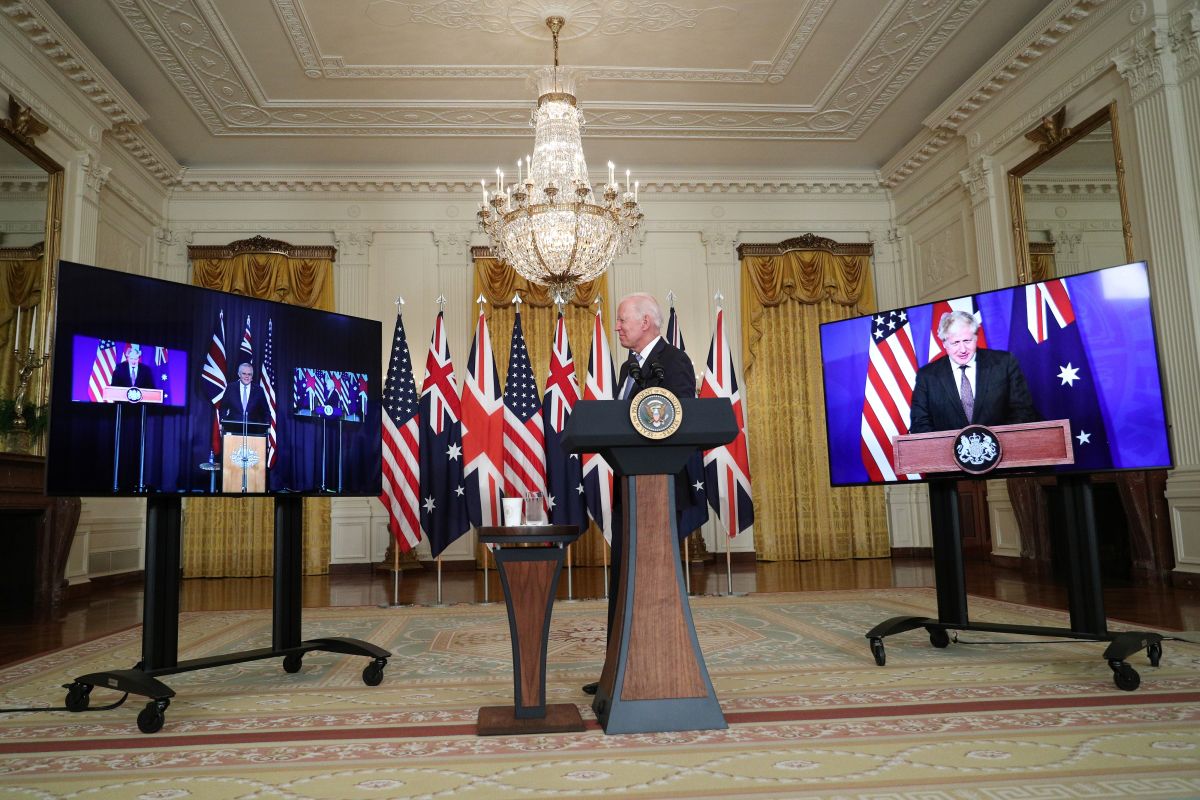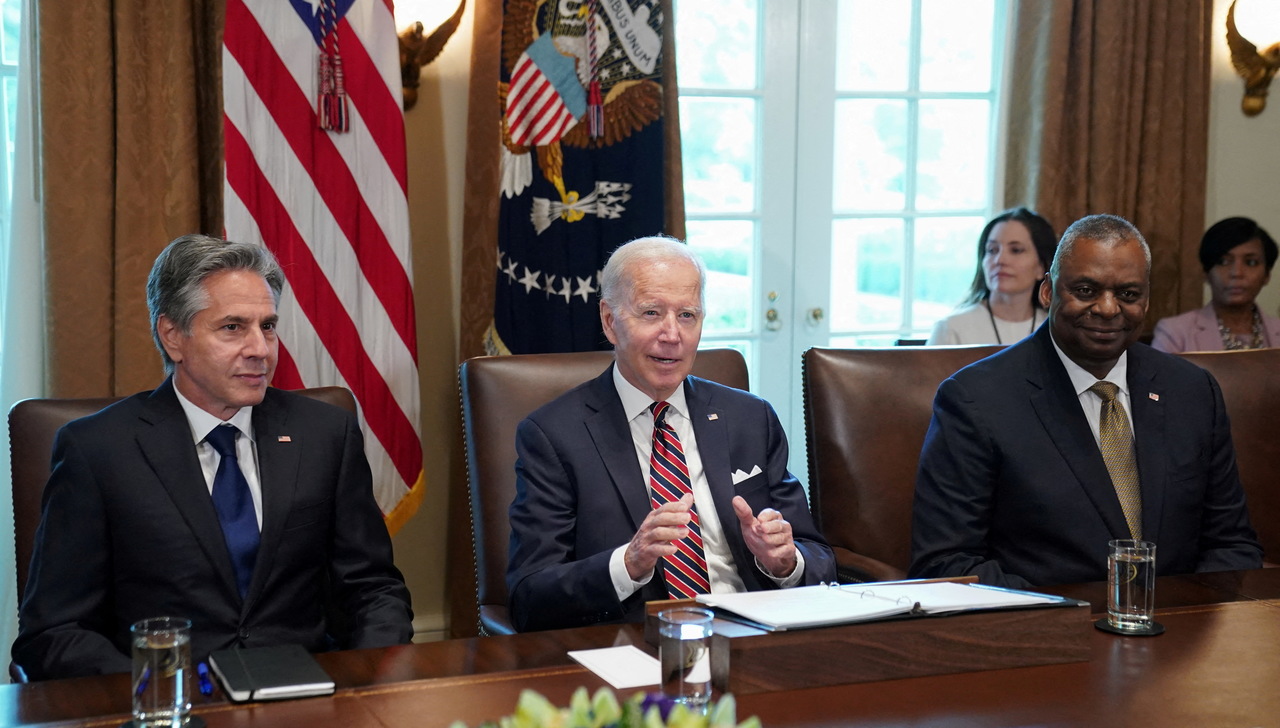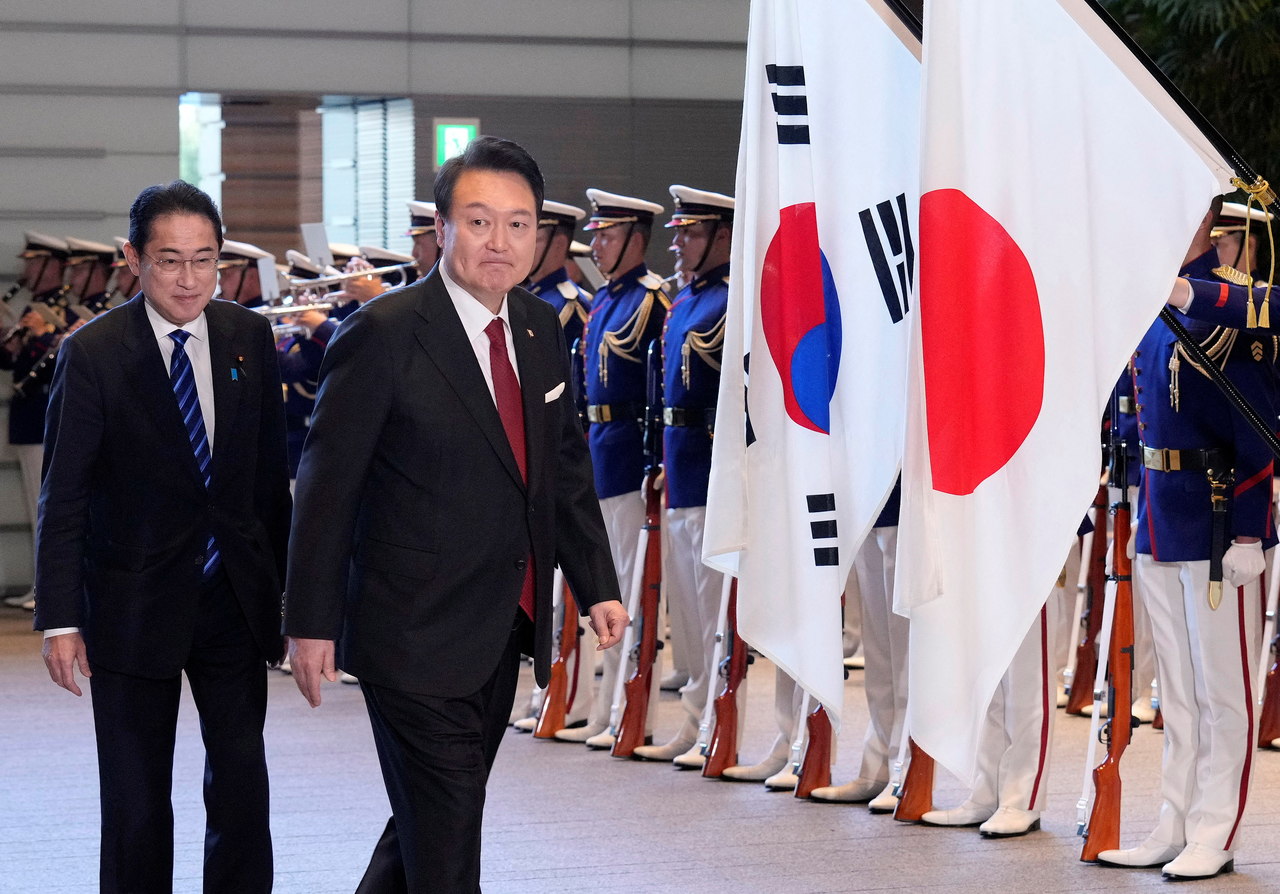Japan, South Korea, and the U.S. Declare Expanded Trilateral Partnership
On 18 August, the leaders of Japan, South Korea, and the United States held a trilateral summit at Camp David. The partners decided to strengthen relations in the face of the growing threat from China and North Korea and those states’ cooperation with Russia, which is waging war against Ukraine. The initiation of expanded cooperation in a trilateral format and Japan’s and South Korea's willingness to cooperate with each other will strengthen the tenets of the U.S. Indo-Pacific strategy and improve its cooperation with allies in the region.
 JIM BOURG/Reuters/Forum
JIM BOURG/Reuters/Forum
What are the goals and areas of cooperation?
The initiation of trilateral cooperation is expected to enhance the security of Japan, South Korea, and the U.S. against the growing military threat from China and North Korea and ensure greater stability in the Indo-Pacific, including the Taiwan Strait. To this end, the partners will hold annual trilateral military exercises involving simultaneous land, sea, air, and cyber operations. The countries will also work together to combat cyberthreats from North Korea and its evasion of sanctions through the use of tools in cyberspace. In addition, they will increase information-sharing on North Korea’s missile tests and strengthen cooperation on missile defence. The format is also tasked with improving the economic security of the three countries. It is intended to allow better detection of threats in global supply chains, safeguard against technology theft, and increase export controls to avoid unwanted use of dual-use technology.
How does the format fit into U.S. policy towards the Indo-Pacific?
The establishment of the trilateral format is in line with the U.S. strategy, which points to the crucial importance of the Indo-Pacific for American interests and global order. It represents another element of the Biden administration’s strengthening of regional cooperation, following the establishment of the AUKUS (Australia, the UK, and the U.S.) trilateral security partnership, the deepening of cooperation in the QUAD format (the U.S., India, Australia, Japan), and the announcement of the Indo-Pacific Economic Initiative (IPEF). The U.S. also strengthened cooperation with ASEAN countries and within APEC, and military cooperation with the Philippines. The development of cooperation in a trilateral format with the two most important Asian allies of the U.S. is expected to promote stability in the Indo-Pacific and may prompt other countries in the region to deepen cooperation with them. From the U.S. point of view, there has been a shift in South Korean policy, expressed by pointing out in the text of the declaration not only threats from North Korea but also from China.
What are the guarantees of the format’s durability?
The format is not based on treaty obligations, only political ones. To increase its sustainability, the U.S. administration sought to give the meeting a symbolic dimension. That's why the leaders’ meeting was held at Camp David, the U.S. president’s resort where, among other things, a peace agreement was negotiated between Egypt and Israel. To ensure continuity of cooperation, trilateral meetings of the leaders, as well as defence and foreign ministers and security advisors, are to be held at least once a year. On the economic front, meetings will be initiated between the ministers of finance and those responsible for trade and industry. The countries have also set up the Trilateral Indo-Pacific Dialogue to allow for better coordination of policies in the region. Nonetheless, internal political conditions in each of the three countries may hinder the format’s operation. Changing governments in Japan and South Korea could adversely affect the current willingness for deeper cooperation. In turn, the assumption of power in the U.S. by a Republican candidate would likely be associated with a decline in the importance of multilateral cooperation and an increase in transactionalism in foreign policy, and perhaps the isolationist tendencies that characterise “Trumpism”.
What has influenced Japan’s and South Korea’s willingness to cooperate?
President Biden and his administration have been pushing for several months to improve relations between South Korea and Japan. Underlying the tensions in their relationship is the Japanese occupation of Korea from 1910 to 1945. Unresolved historical issues have affected current politics and have led to a shift in the dispute to trade relations and the introduction of export restrictions. The rise of the direct threat from North Korea, China’s long-term challenge to the regional and global order, and the deepening of its relationship with Russia have prompted South Korean President Yoon Suk-yeol to try to resolve disputes in bilateral relations with Japan, which would facilitate trilateral cooperation with it and the U.S. While this does not prove that all disputes in Japan-South Korea relations have been resolved, it will facilitate coordination of U.S. policy with allies in the region and could lead to further deepening of cooperation between the two countries stemming from common threats.
How did China and North Korea react?
China criticised the agreement, calling it an effort by countries to enhance their own security at the expense of regional stability. In their view, it is another group (after QUAD and AUKUS) set up by the U.S. to confront China. The meeting between Biden, Prime Minister Kishida Fumio, and President Yoon was further described in the Chinese press as the beginning of a new Cold War. In North Korea’s view, on the other hand, the summit was aimed at laying the groundwork for a military provocation (through expanded military exercises) that could result in a nuclear war. It is possible that in response to the Camp David meeting, North Korea may conduct further ballistic missile tests or take other actions using military force, posing a potential threat to South Korea and Japan.





